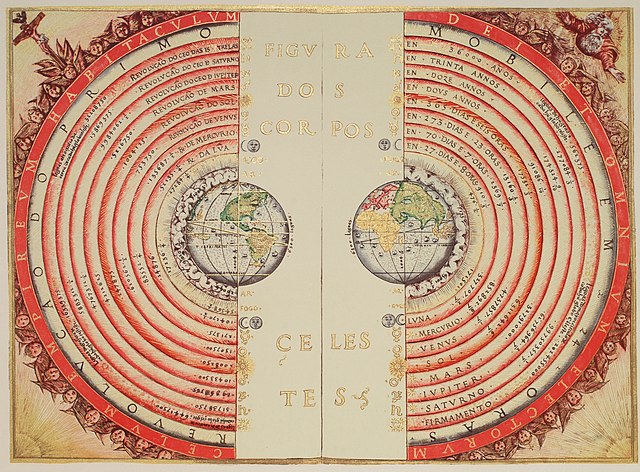A gazetteer is a geographical dictionary or directory used in conjunction with a map or atlas. It typically contains information concerning the geographical makeup, social statistics and physical features of a country, region, or continent. Content of a gazetteer can include a subject's location, dimensions of peaks and waterways, population, gross domestic product and literacy rate. This information is generally divided into topics with entries listed in alphabetical order.
Ordnance Gazetteer for Scotland - Title Page
Ordnance Gazetteer for Scotland - First Page
"Prevailing Religions of the British Indian Empire", from the Imperial Gazetteer of India, Oxford University Press, 1909
"Jinling Tuyong" ('Gazetteer of Jinling'), a Ming dynasty gazetteer printed in 1624 with 40 different woodblock printed scenes of 17th-century Nanjing.
Claudius Ptolemy was an Alexandrian mathematician, astronomer, astrologer, geographer, and music theorist who wrote about a dozen scientific treatises, three of which were important to later Byzantine, Islamic, and Western European science. The first was his astronomical treatise now known as the Almagest, originally entitled Mathematical Treatise. The second is the Geography, which is a thorough discussion on maps and the geographic knowledge of the Greco-Roman world. The third is the astrological treatise in which he attempted to adapt horoscopic astrology to the Aristotelian natural philosophy of his day. This is sometimes known as the Apotelesmatika but more commonly known as the Tetrábiblos, from the Koine Greek meaning "Four Books", or by its Latin equivalent Quadripartite.
Portrait of Ptolemy by Justus van Gent and Pedro Berruguete (1476)
Engraving of a crowned Ptolemy being guided by Urania, by Gregor Reisch (1508), from Margarita Philosophica showing an early conflation of the mathematician with the royal house of Ptolemaic Egypt, with the same last name.
Pages from the Almagest in Arabic translation showing astronomical tables.
A depiction of the non-Ptolemaic Universe with no epicycles, possibly from 500 years before Ptolemy, as described in the Planetary Hypotheses by Bartolomeu Velho (1568).








